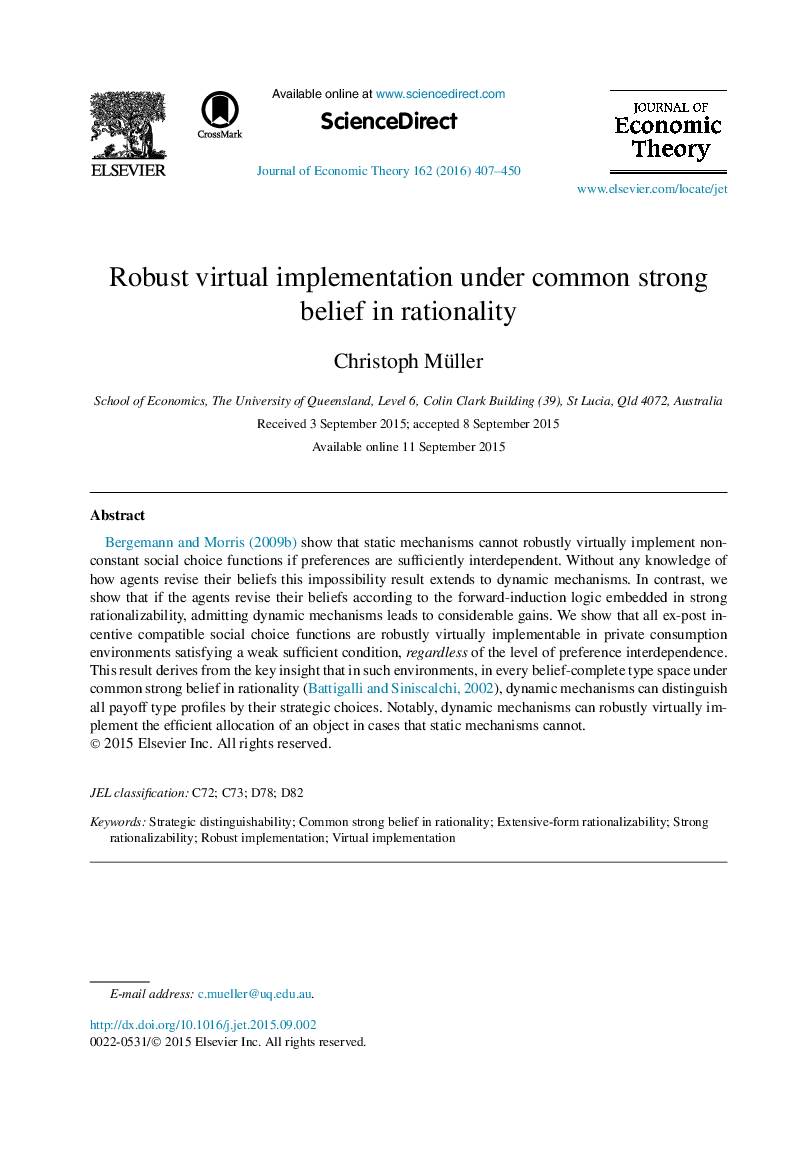| Article ID | Journal | Published Year | Pages | File Type |
|---|---|---|---|---|
| 7359557 | Journal of Economic Theory | 2016 | 44 Pages |
Abstract
Bergemann and Morris (2009b) show that static mechanisms cannot robustly virtually implement non-constant social choice functions if preferences are sufficiently interdependent. Without any knowledge of how agents revise their beliefs this impossibility result extends to dynamic mechanisms. In contrast, we show that if the agents revise their beliefs according to the forward-induction logic embedded in strong rationalizability, admitting dynamic mechanisms leads to considerable gains. We show that all ex-post incentive compatible social choice functions are robustly virtually implementable in private consumption environments satisfying a weak sufficient condition, regardless of the level of preference interdependence. This result derives from the key insight that in such environments, in every belief-complete type space under common strong belief in rationality (Battigalli and Siniscalchi, 2002), dynamic mechanisms can distinguish all payoff type profiles by their strategic choices. Notably, dynamic mechanisms can robustly virtually implement the efficient allocation of an object in cases that static mechanisms cannot.
Related Topics
Social Sciences and Humanities
Economics, Econometrics and Finance
Economics and Econometrics
Authors
Christoph Müller,
